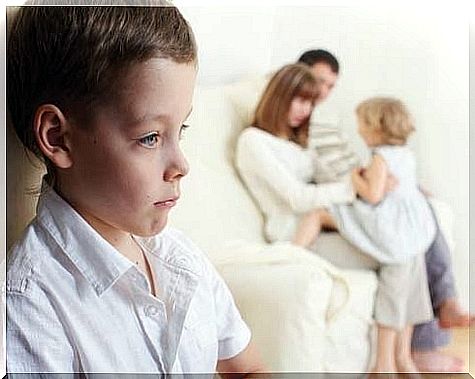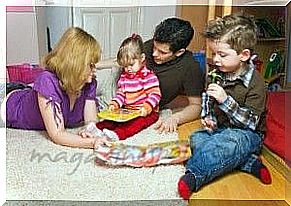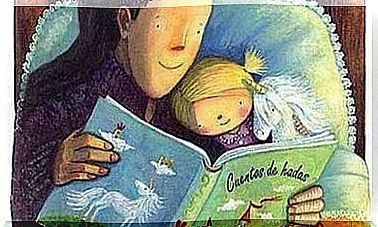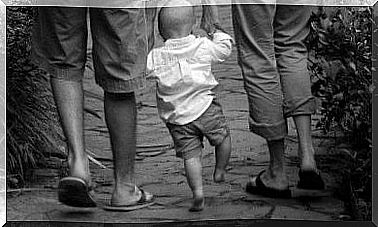Is There A Favorite Child?

Everyone loves their children the same, until science shows otherwise. Well, several studies show that, although it is difficult to assume it, the “myth” of the favorite son is a proven reality. So, as Jeffrey Kluger states, “95% of parents have a favorite child and the remaining 5% lie.”
However, it seems that few mothers agree with this “check.” In this article we will see both positions.
Experts maintain that it is natural for children to arouse different emotions, which is why more fluid relationships with some can occur due to aspects of affinity and personality. This controversial conclusion was obtained after numerous scientific works carried out on this issue and has generated controversy.
Find out in this article why it is affirmed that the favorite child exists, the exhaustive investigations that were carried out to arrive at this theory and what impact the predilection has within the family dynamics.
According to science, you have a favorite son
A study led by Katherine Conger, Professor of Human Development and Family Studies at the University of California, showed that 65% of fathers and 70% of mothers have a preference for one of their children, usually the oldest. Conger’s team analyzed nearly 400 families over three years.
The analysis showed that predilection is associated with the birth order of each child. Far from the typical “I love them all in equal measure” of every parent, many voices assure that favoritism is a natural and inevitable mechanism to achieve the survival of the species.
“The biological and narcissistic act of replicating oneself for generations to come prompts parents to lean in favor of the oldest or healthiest child, as they will be more reproductively successful,” says Kugler. In addition , changes in the treatment related to the time in which each successor was born were perceived.
Along the same lines, the neuropsychiatrist César Sierra assured that there is a predilection determined by the place that each mother and father give – unconsciously or spontaneously – to each successor, depending on the context of gestation, birth and upbringing.

How does it impact on family dynamics?
” Favoritism affects the relationship between all family members, ” said psychoanalyst Ellen Libby, who also noted that it can foster sibling rivalry. According to experts from the parenting.org organization, siblings clash over their place in the family and parental care.
A Cornell University study analyzed the link between mothers and adult children in 275 households to study the relationship between maternal preference and depression. Two-thirds of those mothers reported having a favorite child, who experiences feelings of guilt and the obligation to take care of his parents in the future.
The relational dynamics of many families is crossed by the preference for a child. The psychologist María Elena López indicates that this situation “occurs frequently at different times in life.” Such is the case, for example, of families where you have a king and, years later, the little princess arrives.
Favorite children according to mothers
Despite what science says, the feelings of a mother are different, believing ourselves capable of affirming (to provide numerical data) that 100% of mothers claim to love all their children equally. And, how can you love one child more than another?

Siblings are often polar opposites, perhaps one is more intelligent, but the other is more loving. Both are two virtues that all mothers love, that make both children different, but both from the same mother and deserving of the same love.
Good parents try to be fair, giving the same to one child as to another when it comes to economy, attention and love.
Sometimes it is not a matter of which one is a favorite, only that sometimes they can contribute something to mom at certain times that her brother cannot and vice versa.
I illustrate this for you: Suppose mom likes to sew and has two daughters. One loves to sew, the other hates it. If mom starts sewing, it is logical that she calls the one she likes to share that moment with her. Perhaps the other has a talent for drawing and then her mother asks her to teach her or to draw a picture for her to put on the fridge.
Each child can contribute different things and it is the responsibility of the parents to make them see that everyone is valuable by showing that they are fair in all respects with everyone.









